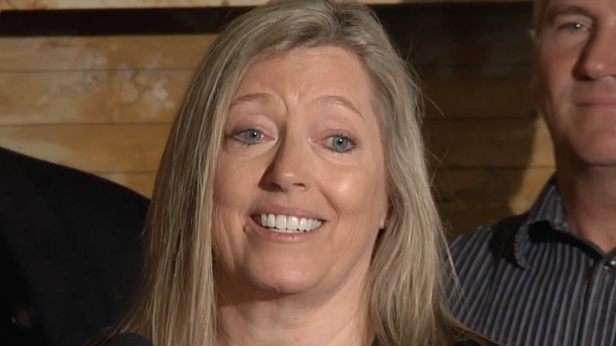
September 4, 2017
By Donna Murr
Eau Claire
The following op-ed first appeared in the Eau Claire Leader-Telegram on August 27.
It was Alexander Graham Bell who first proclaimed, “When one door closes, another door opens.” This statement perfectly describes what has happened to me and my family.
After a disappointing setback at the U.S. Supreme Court, our crusade for our property rights has entered a new phase. In a ruling on June 23, the high court allowed St. Croix County to get away with a “taking” of our private property. But new legislation was recently introduced to undo the damage in Wisconsin while setting an example for other states to follow.
Our story starts with my parents’ dream about owning a cabin for our family to enjoy for generations. Their dream came true in 1960 when they purchased a lot on the St. Croix River and built a modest cabin. Three years later, they invested in the undeveloped one-acre lot next door. They dreamed about building their retirement home on this beautiful property and leaving the cabin for us kids. My father also believed that purchasing the adjacent lot was a good investment.
Unfortunately, he suffered a stroke shortly after he retired, and his dream of building a retirement home ended. Since he was no longer physically able to enjoy the cabin, my parents signed it over to me and my siblings in 1994. The following year, they gave us the lot next door.
While this may sound like a typical, American family dream of passing along property from one generation to the next, it has turned out to be anything but.
In the early 2000s, my brothers and sister and I decided it was time to repair and improve our cabin. We agreed to fund the project by selling the lot next door. But the government would not let us sell it unless we sold the cabin as well. Without any notice or permission, the government had “effectively merged” our two properties together.
The regulations imposed on our property include a terribly unfair double standard. If our undeveloped lot was owned by anyone else, they could separately sell or develop it. It is only my family that is prohibited from doing so, simply because we also own the adjoining cabin parcel.
My parents raised us to respect the Constitution, and there was no question we had to fight for our rights. According to the Fifth Amendment, if the government takes property it must pay for it. St. Croix County property records show our cabin had an assessed value of $518,900 in 2010 and the undeveloped lot had an assessed value of $475,000. After losing in the courts, the two parcels are now assessed as one parcel with a total value of $485,600. Once the vacant lot became unbuildable and unsellable, the total value of our property decreased by over $500,000.
We were thrilled when the Supreme Court took our case, and optimistic for a successful outcome for all Americans. But hope turned to heartache when the decision came down on a 5-3 vote on the side of the government using a confusing new test that, according to legal experts, makes it more difficult to challenge land-use restrictions.
But then another door opened. Only a few hours after the disappointing news, I got a message from my new hero. State Rep. Adam Jarchow, R-Balsam Lake, lifted the gloom and declared, “Donna, I have a bill drafted and ready to roll to fix your issue, and I am 100 percent committed to fixing this injustice.” I started to cry.
Rep. Jarchow and Sen. Tom Tiffany, R-Hazelhurst, have unveiled legislation to shore up the property rights that the Supreme Court failed to defend. First, their proposal states that if you buy land in Wisconsin with the right to build, you keep that right even if lot-size rules later change. Second, owners of separate, neighboring lots cannot have them forcibly combined by government.
“These changes will restore rights for Wisconsin owners,” said John Groen, who represented us at the Supreme Court on behalf of Pacific Legal Foundation, a property rights defense organization. “They protect owners’ ability to use their property consistent with their original, lawful expectations. Any development would still have to comply with environmental protections. But government could not erase your rights through creative regulatory strategies.”
Our experience should be a reminder to everyone that we cannot take our property rights for granted. While this new door remains open, there is renewed hope that our long-sought victory is within reach and property rights will gain back the strength that was lost on June 23.
A resident of Eau Claire, Donna Murr was one of the litigants in Murr v. Wisconsin and St. Croix County in the U.S. Supreme Court.
The MacIver News Service has previously reported on this story: